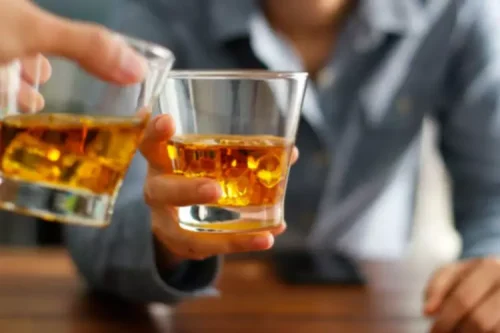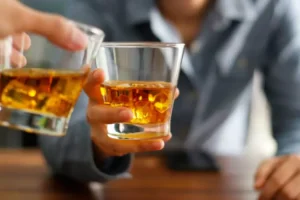
This happens at a rate of about one beer, a small glass of wine, or one shot of liquor per hour. So what can you do to make sure you don’t get that infamous hangover headache caused by dehydration? Let’s find out does drinking wine dehydrate you and get a little background on why alcohol dehydrates you in the first place. Fainting, confusion, or blood in vomit or diarrhea are signs that you need immediate medical attention.
Eat hydrating foods:
- Don’t assume that a single glass of wine will overly dehydrate you, but keep in mind that wine is generally dehydrating compared to other alcoholic beverages like beer.
- White wines, on the other hand, tend to be higher in sugar, which does impact hydration.
- Sodium is an electrolyte mineral found in many foods, and most people obtain adequate amounts from table salt.
- Intravenous (IV) fluids may be required to stabilize you if you’re experiencing severe dehydration.
- Our daily research-backed readings teach you the neuroscience of alcohol, and our in-app Toolkit provides the resources and activities you need to navigate each challenge.
Alcohols like whiskey and brandy have high levels of congeners, including tannins and acetaldehyde. These might lead to dehydration more quickly, according to a 2010 study 8 9. But that doesn’t mean you shouldn’t enjoy an adult beverage or two from time to time. Here’s what you need to know about how alcohol dehydrates the body and how to drink responsibly. These include increased facial lines, oral commissures (lines around the mouth), and increased visibility of blood vessels.
Does Alcohol Dehydrate You?
A heavy alcoholic drink like whiskey, brandy, or rum can dehydrate you more than lighter drinks. Stick to beer and wine to mitigate any dehydration you may experience. However, alcohol’s dehydrating effects will be somewhat reduced in some of the “lighter” alcoholic drinks. Since alcohol travels through the bloodstream, it can travel to other areas of our body including the pituitary gland in our brain. The pituitary gland is responsible for regulating our growth, metabolism, and reproduction by creating and regulating hormones.
- Alcohol can disrupt electrolyte balance, which can contribute to dehydration.
- Many carbs in alcohol turn to sugar that will spike your blood sugar levels.
How Alcohol Dehydrates You
In order to break this substance down and https://ecosoberhouse.com/ remove it from the body, your liver does most of the work of turning it into acetate. Alcohol can even get into the lungs and be released when you exhale. This is why breathalyzers are often used to check if someone’s driving while intoxicated. This test measures blood alcohol concentration (BAC), or the amount of alcohol in your blood. There are a few symptoms you may not automatically connect to dehydration.
What to Do If You Are Dehydrated

Dehydration can affect multiple bodily functions and cause a wide range of symptoms. Because of this, you can also feel sluggish, drained, or tired even though the alcohol technically has some carbohydrates in each glass your body should be able to use for quick energy. People who are well-hydrated usually have regular bowel movements. Hard bowel movements or constipation can be a sign that you aren’t getting enough water — or fiber. Sign Up Sober living house for Wine Spectator’s Free Email Newsletters and stay up-to-date with all things wine.
Is Wine or Beer More Dehydrating?

Our Hangover IV therapy starts with a Myer’s cocktail base, which includes a mixture of fluids, electrolytes, and other great stuff the body can always use. It can happen when you don’t drink enough or lose a lot of fluids due to exercise, heat, diarrhea, or other reasons. Chronic dehydration due to alcohol consumption can lead to kidney damage and increase the risk of kidney stones and urinary tract infections. It can also cause muscle cramps due to an imbalance of electrolytes in the body, such as sodium, potassium, and magnesium, which are essential for proper muscle function. Other lifestyle factors, such as exercise, climate, and medication use, can also impact alcohol’s dehydrating effects.

What to do if you’re dehydrated

A 2016 study published in the American Journal of Clinical Nutrition assigned a beverage hydration index (BHI) to various drinks that would determine hydration status after ingestion. In other words, the alcohol alone in one standard drink can make your body produce a little less than half a cup of pee. Added sugar creates extra acid, which makes it harder for your body to store water. Salty foods, like chips and other snacks, are also risky when it comes to staying hydrated. If you have a full stomach, it can essentially slow down the absorption of alcohol.
Monitor alcohol intake:
If you can’t seem to replenish fluids on your own, see a healthcare provider. You may need intravenous (IV) fluids or other medical treatment. If your child appears dehydrated, it’s best to contact a provider right away. When you overheat — whether it’s because of a sunny day, an intense workout, or a fever — your body sweats to cool down. Since sweat is mostly made of water, your body needs to stay hydrated to help you stay nice and cool. Alcohol will dehydrate you, which has adverse effects both in the short and long term.
